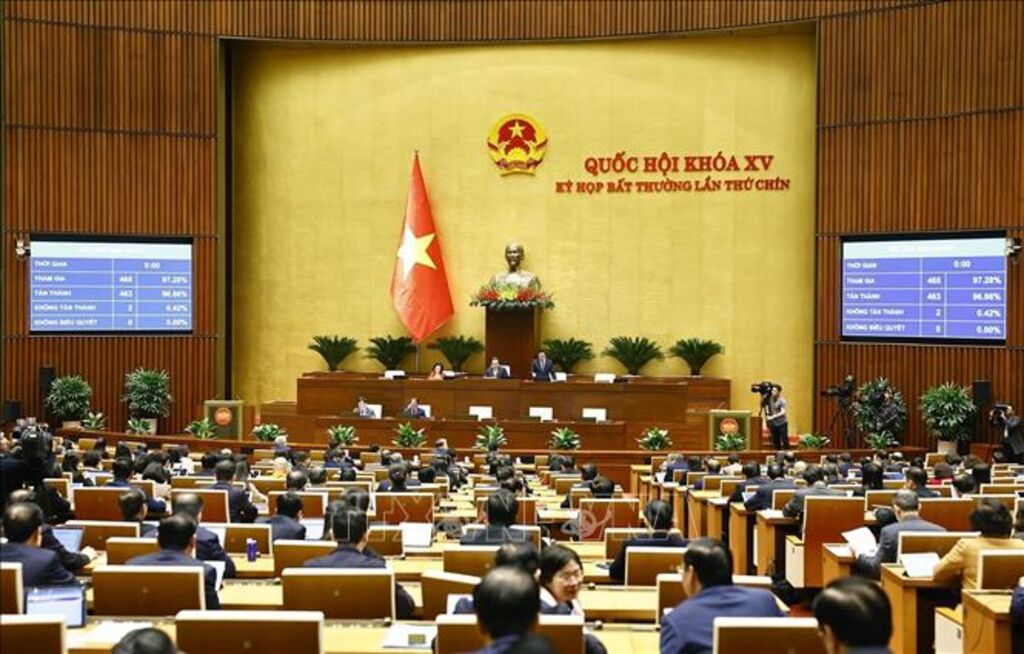 |
| The 15th National Assembly adopts Law on Organization of the Government at its ninth extraordinary session.__Photo: VNA |
Coming into force on March 1, 2025, the 2025 Law on Organization of the Government is set to transform the operational landscape of Vietnam’s administrative apparatus. This legislation introduces several novel mechanisms and policies with regard to definition of competence, decentralization and delegation of powers with the aim of promptly removing existing bureaucratic bottlenecks, enabling resource mobilization for development, and ensuring proactive adaptation to both domestic and international changes.
Under Article 10 of the 32-article Law, the roles and responsibilities of the Government are clearly delineated. Worthy of note, when it is necessary to mobilize resources to implement national target programs or important national projects, and upon obtaining approval from the competent authority, the Government can report and seek permission from the Standing Committee of the National Assembly (NA) for alternative solutions beyond current legal framework. Following this, the Government will have to send a report to the legislature at the earliest opportunity.
Moreover, the Law mandates the Government to perform uniform state management of sectors and fields and assign the scope of state management to ministries and ministerial-level agencies. The cabinet will also delegate powers to ministers and heads of ministerial-level agencies within the scope of management, thus clearly outlining the responsibilities of ministers and ministerial-level agencies in their dual capacities as government member and governmental agency head.
The legislation also stipulates that the Government will decide on sectoral, regional and local development policies, except those reserved for the NA or local administrations. Local authorities will be empowered to make decisions on, and implement, the tasks assigned to them, and bear accountability for the outcomes.
Additionally, the Law expands the Prime Minister’s authority, allowing the cabinet head to apply urgent measures beyond existing regulations in cases of national interest, disasters or significant public safety concerns, with a requirement to report these actions to the competent Party and NA agencies promptly.
The Prime Minister is further empowered to propose appointment, relief from duty, or dismissal of deputy prime ministers, ministers, and heads of ministerial-level agencies to the NA, as well as the suspension of work of these title holders to the President when the NA is on recess.
In defining accountability, the law emphasizes that the Prime Minister is responsible to the NA for the Government's functionality and the performance of the state administrative system at both central and local levels. This includes accountability for the decisions made by the Prime Minister as well as the implementation outcomes of these decisions. The Prime Minister is also tasked with reporting on the Government’s work to the NA, NA Standing Committee and President and addressing inquiries from NA deputies as necessary.
This new legislative framework marks a significant step towards enhancing the efficiency and responsiveness of Vietnam's administrative apparatus, fostering an environment conducive to development and adaptability.- (VLLF)









